Space
Sign up for our newsletter
We summarize the week's scientific breakthroughs every Thursday.
-
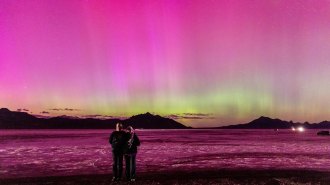 Space
SpaceThe sun is entering solar maximum. Expect auroras, and more
May saw the strongest auroras in recent memory. As the sun gets more active, those light shows may be a preview of what’s to come until at least 2026.
By Adam Mann -
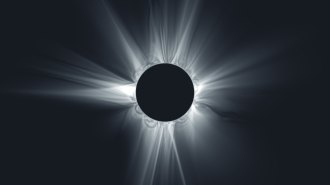 Space
SpaceHere’s how predictions of the sun’s corona during the 2024 eclipse fared
Models from Predictive Science Inc. forecasted the appearance of the sun’s corona during the April eclipse to better understand our star.
By Adam Mann -
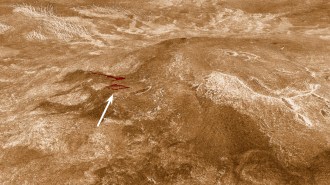 Planetary Science
Planetary ScienceVenus might be as volcanically active as Earth
Data from NASA’s Magellan spacecraft suggest that volcanic activity is widespread on Venus.
By Adam Mann -
 Space
SpaceForget moon walking. Scientists want to give moon running a try
Researchers took over an amusement park attraction to test out an idea for how astronauts might exercise on the moon.
By Meghan Rosen -
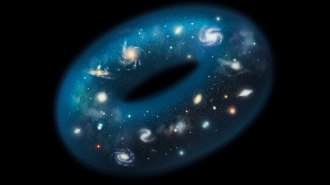 Cosmology
CosmologyThe universe may have a complex geometry — like a doughnut
Physicists haven’t yet ruled out the possibility that the universe has a complicated topology in which space loops back around on itself.
-
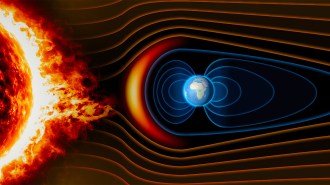 Earth
EarthA weaker magnetic field may have paved the way for marine life to go big
Decreased protection from cosmic radiation may have increased oxygen levels in the atmosphere and oceans, allowing animals to grow larger.
-
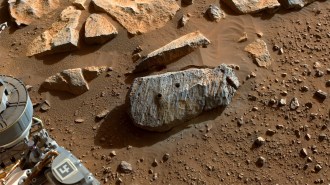 Space
SpaceNASA’s budget woes put ambitious space research at risk
Mars Sample Return and missions to study other planets and celestial bodies, including lunar efforts, face big cuts and delays.
By Adam Mann -
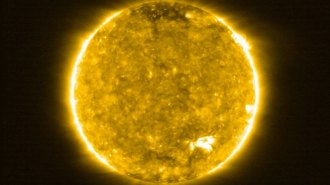 Space
SpaceScientists are getting closer to understanding the sun’s ‘campfire’ flares
The detection of cool plasma before the tiny outbursts on the sun is helping researchers make connections between campfire flares and other solar eruptions.
By Adam Mann -
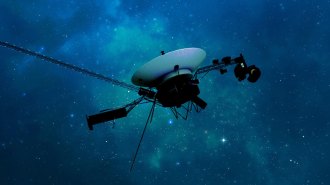 Space
Space‘Humanity’s spacecraft’ Voyager 1 is back online and still exploring
After five months of glitching, the venerable space probe contacted Earth and is continuing its interstellar mission billions of kilometers away.
By Ramin Skibba -
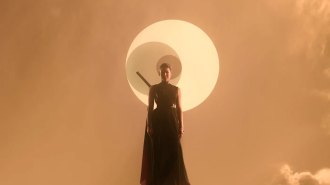 Physics
PhysicsSeparating science fact from fiction in Netflix’s ‘3 Body Problem’
Real science underpins much of the action in the show — along with a hefty dose of artistic liberty.
-
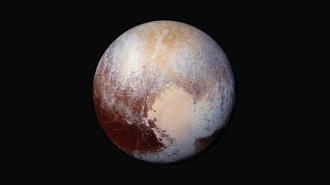 Planetary Science
Planetary SciencePluto’s heart-shaped basin might not hide an ocean after all
Planetary scientists propose an alternative theory to explain why Sputnik Planitia has stayed put across Pluto’s equator.
By Adam Mann -
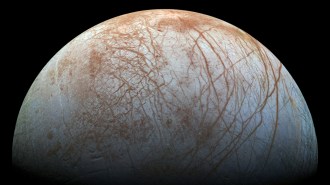 Planetary Science
Planetary ScienceOur picture of habitability on Europa, a top contender for hosting life, is changing
The moon of Jupiter is considered one of the most promising places to look for life, but its subsurface ocean may be less habitable than once thought.
By Nikk Ogasa